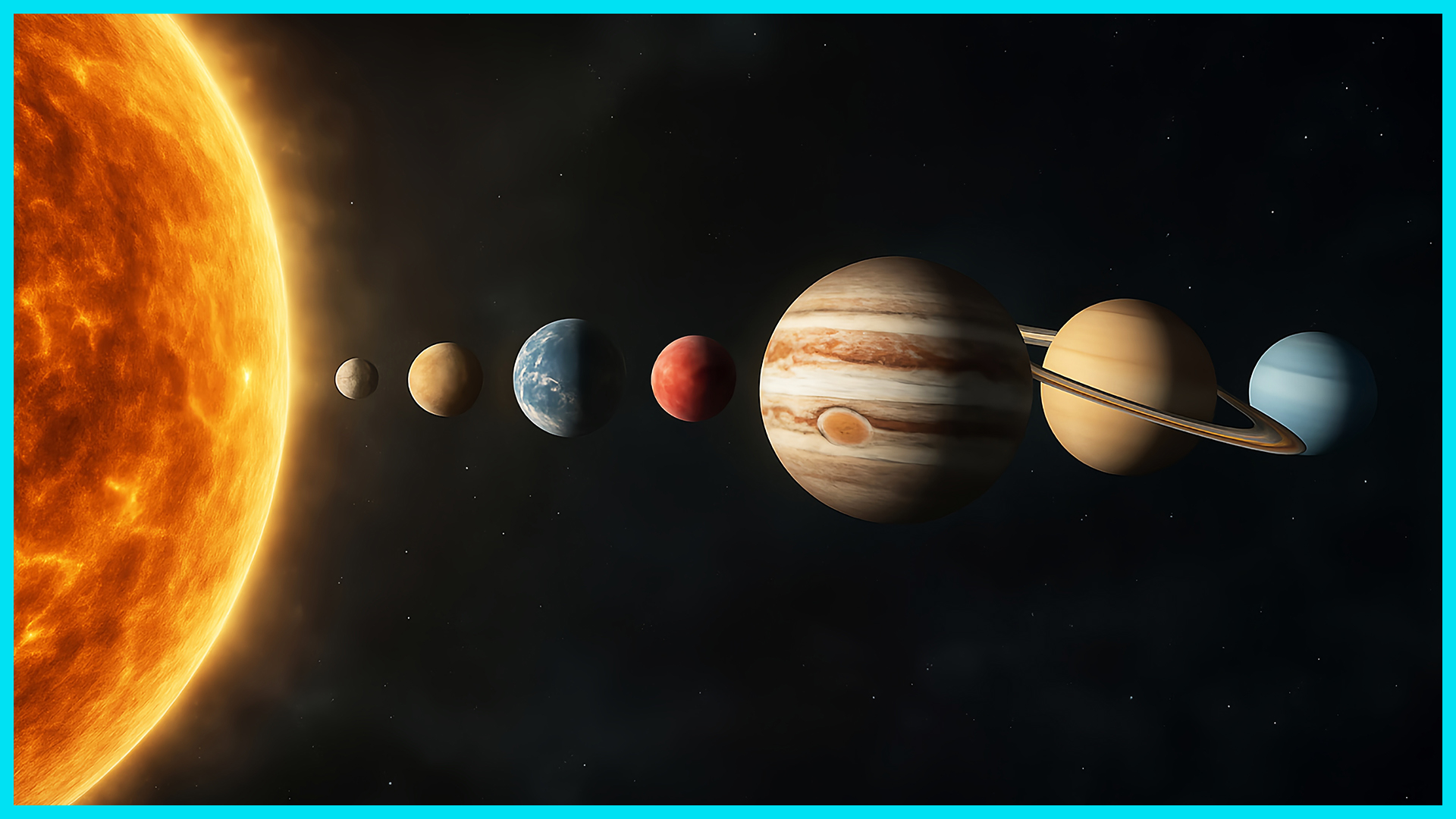
Imagine looking up at the stars on a clear night.
You see Saturn’s rings through a telescope. Or feel the sun's warmth in Delhi in the morning.
Our solar system is full of amazing facts about Earth and the solar system that surprise everyone.
Did you know Earth is a bit squashed at the equator because of its spin? Or that Venus takes longer to spin around once than Earth takes to orbit the Sun?
These facts about Earth and its neighbours show us a universe that's much stranger than we thought.
1. Earth’s 24-hour spin creates a 13-mile bulge at the equator.
2. Venus takes 243 Earth days to rotate once, longer than its 225-day orbit around the Sun.
3. Earth’s magnetic field shields life from deadly solar radiation, a unique solar system advantage.
4. Earth holds 71% water, yet only 2.5% is fresh, making our planet’s resources a cosmic rarity.
5. Jupiter’s gravity acts as a cosmic vacuum, deflecting asteroids that could threaten Earth.
Key Takeaways:
Earth's journey through space is full of mind-blowing information about space. It connects ancient wisdom with modern science. Let's see how our planet fits into the solar system.
The Third Rock from the Sun: Earth’s Place in Our Cosmic Neighbourhood.

Earth orbits in the “Goldilocks zone” of the solar system.
This zone has temperatures that allow liquid water, a key to life. Our name comes from Old English ēorþe, meaning “ground”.
This fact about Earth shows how early cultures saw their world. Mars has freezing deserts, and Venus has scorching surfaces.
Earth's spot is just right.
A Planet Born 4.5 Billion Years Ago: The Ancient History of Earth
“Time is a cycle of creation and dissolution,” an idea shared by ancient Sanskrit texts and modern science.
Rocks and meteorites tell us about Earth's age through fascinating details about the universe.
Radiometric dating shows our planet formed 4.5 billion years ago.
This time matches cosmic cycles described in ancient Indian cosmology.
What Makes Earth Special Among the Solar System Planets
1. Protective shield: A magnetic field guards us from solar radiation, unlike Mars’ stripped atmosphere.
2. Life’s recipe: 71% water coverage and oxygen-rich air set us apart from barren worlds like Mercury.
These fun facts about the cosmos show Earth's rarity. From plate tectonics recycling nutrients to a stable orbit, our planet's balance sustains life.
Let's protect this fragile oasis in the vast solar system!
Understanding Earth's story reminds us that every solar system holds secrets waiting to be discovered. Stay curious!
Did you know Earth zooms through space at 30 kilometers per second? That’s 108,000 km/h—faster than any bullet or airplane!
This speed keeps our planet in orbit around the Sun. It takes one full lap every 365 days.
Imagine moving through space while drinking your morning chai. This fact changes how we see "stability" on Earth.
Our planet’s 23.4-degree axial tilt causes seasons. When Earth’s Northern Hemisphere leans toward the Sun, summers are hot. When it tilts away, winters are cold. This tilt also brings India’s monsoon rains.
Ancient texts like the Surya Siddhanta knew about these patterns long ago. They mixed science and culture.
1. Earth’s orbital speed: 30 km/s (faster than a rifle bullet)
2. Year length: 365 days (one orbit around the Sun)
3. Seasonal tilt: 23.4°—the angle behind summer monsoons and winter chills
These facts show Earth dances even when we stand. Its journey is not just physics. It's the rhythm of life.
Next time you feel grounded, remember: we're all astronauts on a cosmic voyage!
What is an amazing fact about Earth that many people don't know?
Earth is special because it's the only planet with liquid water. About 71% of its surface is covered in water. This makes it a unique place for life!
How did scientists determine the age of the Earth?
Scientists figured out Earth is about 4.5 billion years old. They used a method called radiometric dating.
This involves studying how radioactive isotopes change in rocks and meteorites.
What are some fun facts about the solar system planets?
Each planet in our solar system is unique. For example, Venus spins in the opposite direction of its orbit around the Sun.
Jupiter is so big that it's more than twice as massive as all the other planets combined!
Why do we have seasons on Earth?
Earth has seasons because it tilts at 23.4 degrees.
This tilt means different parts get different sunlight. This leads to the changing seasons we see.
What makes Earth special compared to other planets in the solar system?
Earth is special because of its distance from the Sun, magnetic field, atmosphere, and water. These things make it perfect for life to thrive!
How fast does Earth travel through space?
Earth moves around the Sun at 30 kilometres per second. That's about 67,000 miles per hour! It's much faster than any car or plane.
What is the origin of Earth's name?
"Earth" comes from Old English and Germanic words. These words mean "the ground." They show our ancestors' deep connection to the land.
How does Earth's magnetic field protect us?
Earth's magnetic field is like a shield. It keeps us safe from harmful radiation from the Sun. It helps keep our atmosphere stable, which is key for life.